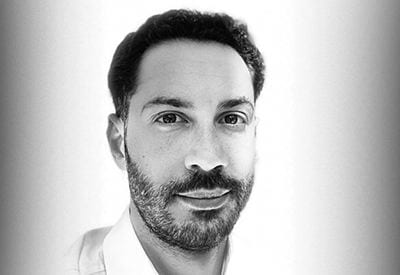
Andrea Carafa serves as Director of the Blackstone Launchpad powered by Techstars and as Rachel Carson College Lecturer in Entrepreneurship and Design Thinking at the University of California, Santa Cruz. He is a member of the UC Office of the President’s Innovation & Entrepreneurship Initiative which enables the UC system to continue creating bold solutions to today’s biggest challenges through innovation and entrepreneurship. He also serves on the Internal Advisory Council for the UCSC Innovation and Business Engagement Hub.
Born and raised in Italy, Carafa came to UC Santa Cruz after founding two ventures as well as teaching and conducting research on innovation at Stanford, CERN, and other European institutions. He created and chaired the Impact Entrepreneurship Initiative at President Obama’s Global Entrepreneurship Summit at Stanford and advocated for the establishment of the Sustainable Development Goals (SDGs) at the United Nations. He was also an EU Marie Curie Fellow in emerging technology for health, sustainability, and impact.
Carafa finds UC Santa Cruz an ideal setting for finding new ways of designing and developing new technologies and ventures that yield shared prosperity while tackling environmental, health, and societal issues. “This should be one of the foundations for society to tackle the world’s biggest challenges through technology solutions created with diversity, inclusion, and equity in mind,” Carafa said. “UC Santa Cruz is a great lab for that because it leads in social mobility and diversity, it is just a few miles away from the birthplace of tech giants such as Netflix and Apple, it has a growing, diverse entrepreneurial community tackling complex global issues, and it has built an impressive track record of research achievements in just a few decades, from publishing the human genome on the web to pioneering the fields of conservation biology and organic agriculture, among others.”
Currently, Carafa is developing a framework for unlocking the creative potential that is rooted in diversity and fueled by global challenges. His focus extends to creating new ventures and technologies that embody the values of diversity, equity, and inclusion under the umbrella of shared prosperity.
Through the Center for Innovation and Entrepreneurial Development (CIED), he has helped students and faculty design and build new technologies and companies through translational research turning science into innovations. Primarily founded by underrepresented groups, some of these products and companies have won awards at CES and from Techstars.
Leveraging inter-departmental and international collaboration, Carafa has worked with faculty from the Coastal Science Campus to launch a new course called “Hacking 4 Oceans.” The course uses the lean startup methodology to tackle ocean-related problems and was developed with faculty from Stanford, a former senior engineer and founder of Google Images, and a UC Santa Cruz Trustee who is also a former Googler and entrepreneur. Together, they co-teach this course, which will be opened up to the entire UC System. Carafa also teaches a similar Rachel Carson course that uses the same methodology and design thinking to tackle environmental problems and the SDGs.
He has noted that the learning experience in the U.S. is evolving in relation to changes in the industry and in the real world. There is a rapidly growing pool of experiential courses offered in many universities, which use methods that were pioneered and made popular in California. “Experiential learning flips the traditional schooling system instituted centuries ago when the world was very different,” Carafa said.
“As we grow up, we usually learn that making mistakes is not good and it will result in a bad grade. But innovation is a learning process that clashes with those beliefs. Innovators make mistakes all the time and learn from them quickly,” Carafa said. “In experiential courses, the students learn by doing. They learn how to be comfortable with making mistakes, how to learn from their mistakes, and how to thrive in the ambiguity of complex problems and solutions. These soft skills can’t be taken for granted but are necessary to innovate in today’s world, which is facing unprecedented and interrelated crises on many fronts, from public health to democracy, inequality and climate change.”
Visit this website to learn more about Andrea Carafa’s work.
